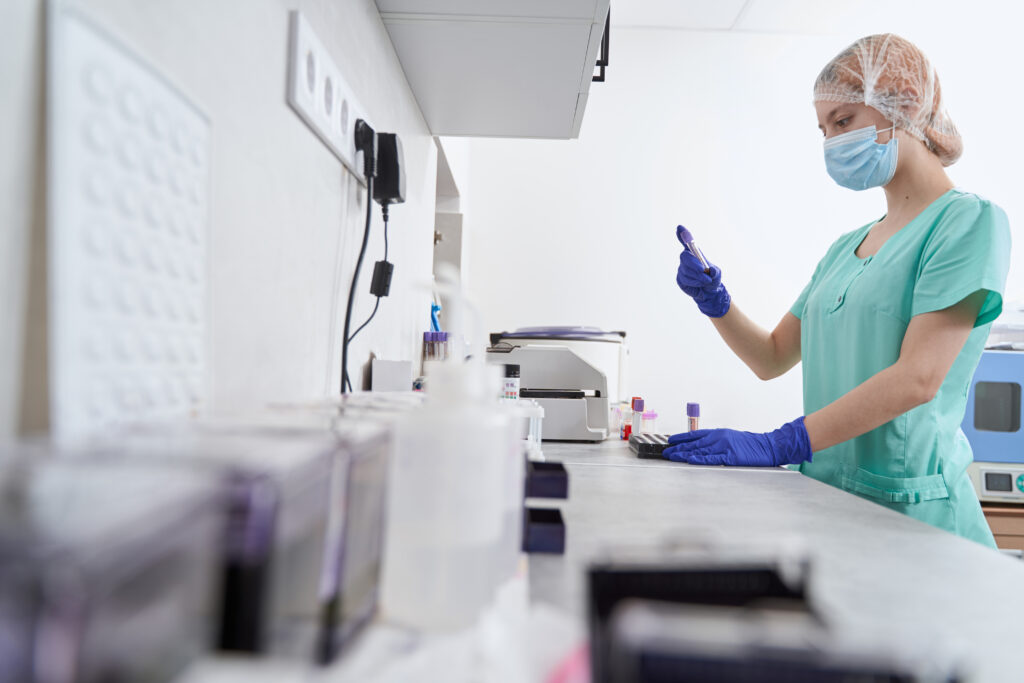Euthyroid sick syndrome, or ESS, is a state in which the thyroid hormone levels are found to be abnormal during an extreme illness or stressor. Euthyroid sick syndrome is also referred to as non-thyroidal illness or NTI because it's a result of underlying severe illness and not considered to be a result of primary thyroid disease. This condition may be seen in people who are in the intensive care unit, during periods of starvation, or after major surgery.
While thyroid disorders are not uncommon, ESS presents a unique and intriguing challenge. It's a condition that can confound healthcare professionals, leading to misdiagnosis and misunderstanding.
How Does ESS Arise?
ESS is a fascinating yet complex phenomenon that arises primarily as a response to various underlying illnesses or life-threatening conditions. When an individual faces severe illness, it's thought their body often initiates a series of adaptive changes as a means of conserving energy and resources. One of these adaptations involves alterations in thyroid hormone metabolism and production.
In ESS, these changes can lead to decreased peripheral conversion of thyroxine (T4) to triiodothyronine (T3), which is the more biologically active form of thyroid hormone. It is theorized that these adaptations, driven by the body's innate survival mechanisms, aim to divert energy away from non-essential processes to prioritize vital functions during illness.
While the exact mechanisms behind ESS are still a subject of ongoing research, it underscores the dramatic changes in the human body in response to severe conditions.

How to Determine Euthyroid Sick Syndrome
Determining ESS typically involves a multifaceted approach that combines clinical evaluation and laboratory testing. Healthcare providers begin by conducting a thorough medical history review and physical examination to identify any underlying illnesses or conditions that might be causing ESS.
Thyroid Function Tests
In ESS, thyroid function tests often reveal abnormal levels of thyroid hormones. When thyroid levels are checked, they often show low T3 and sometimes also a low ft4 with a normal or slightly elevated TSH. However, the TSH is considered to be “inappropriately low” when considering the low levels of T3 and T4 hormones. Reverse T3 (rT3) may be measured to further support the diagnosis.

Importantly, the interpretation of these tests should consider the clinical context, as ESS can often mimic the thyroid hormone pattern seen in genuine thyroid disorders. Therefore, a skilled healthcare provider's expertise in differentiating ESS from other thyroid conditions is invaluable in achieving an accurate diagnosis.
Hormone Levels
Serum triiodothyronine or T3 levels are the first to decrease, but with prolonged and severe illness, the T4 may also become low. If a reverse T3 or rT3 is obtained, it would be elevated and would represent deactivated thyroid hormone. The enzymes that deactivate (or activate) thyroid hormone are called deiodinases.
These levels result from a complex interplay of factors. They may stem from interference in the assay process caused by medications or compounds produced by the body. Additionally, enzymes like iodinases can alter hormone levels, and decreased hormone production originating from the hypothalamus and pituitary glands could also play a role in these fluctuations. (link to HP T diagram).
The hormone alterations at the hypothalamus and pituitary may be secondary to cytokine production or medications such as dopamine and steroids. An additional factor that may play a role during illness/stress is an alteration in the binding of the T4 hormone by proteins.
Some experts believe that the alteration in thyroid hormone may be a compensatory mechanism to reduce metabolism and conserve energy during illness/stress.
Euthyroid Signs and Symptoms
It is often difficult to tease out the symptoms of hypothyroidism from signs and symptoms from the underlying stressor or illness. (link to symptoms of hypothyroidism listed previously). Adverse health outcomes are typically related to underlying illness or stress with thyroid abnormalities resulting secondary to primary illness.

Treating Euthyroid Sick Syndrome
Treating ESS primarily revolves around addressing the underlying cause or condition. Since it usually arises as a response to critical illness, the first step is to manage the main health issue. It's important to tailor the treatment to each individual's specific situation and closely monitor their progress.
Thyroid abnormalities in ESS are usually not treated because they often resolve as the underlying illness or sickness is treated. Although the decision to treat ESS is controversial in individuals who continue to have abnormal thyroid levels with an illness that is not improving, some studies that suggest treatment might be beneficial for select groups.
In some cases, doctors may consider thyroid hormone replacement therapy, but this should be done cautiously because ESS typically resolves when the underlying issue is treated effectively.
Thyroid hormone levels should be monitored periodically during the illness and after its resolution to see if levels are improving as the illness resolves and return to normal after illness resolution.
Get Expert Care from a Trusted Pediatric Endocrinologist
While ESS can occur in children and adults of all ages, we specialize in pediatric endocrinology, to assist those 26 and under. Your child's health is our top priority, and we're here to provide the support and answers you need to ensure they thrive. Don't hesitate to contact Dr. McIver, because every child deserves a healthy and bright future.
Whether you’re looking for a second opinion on a diagnosis or need expert care for your child, Dr. McIver is here for you.

